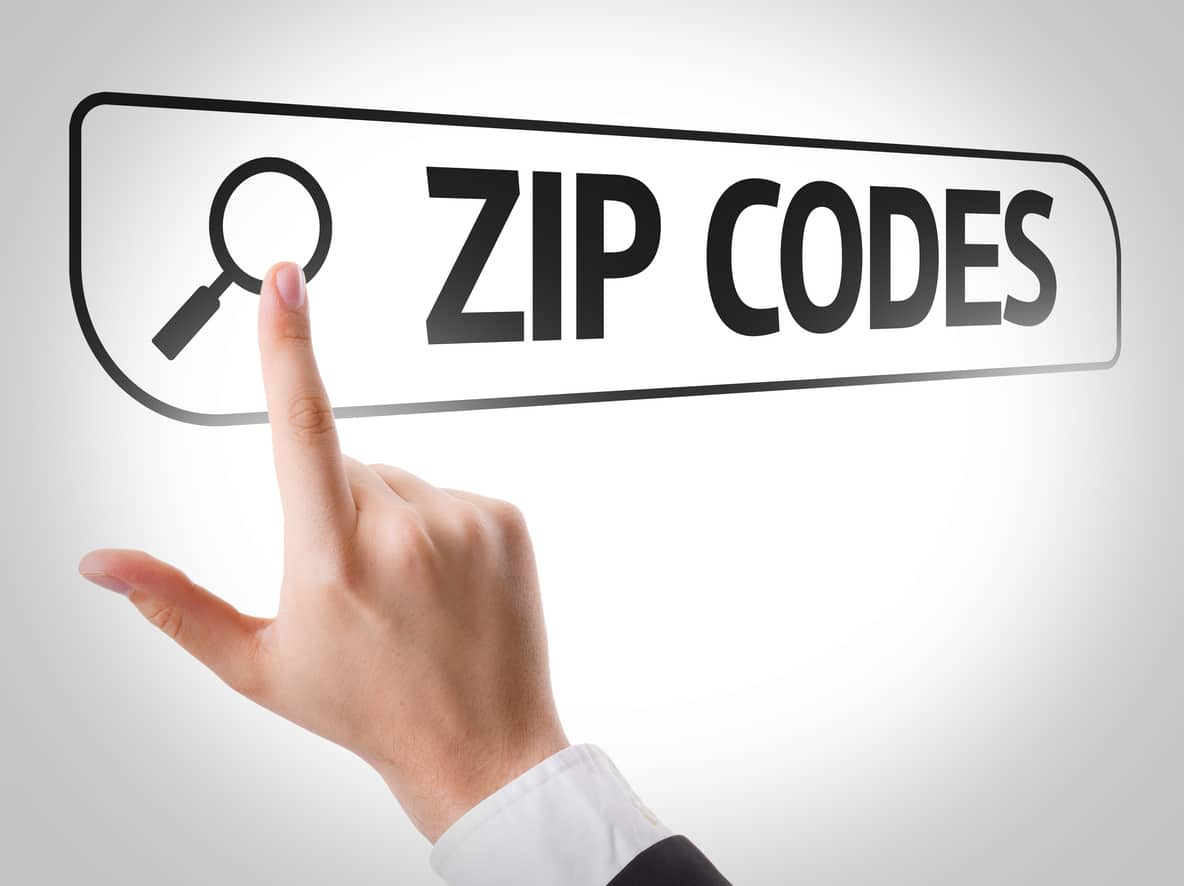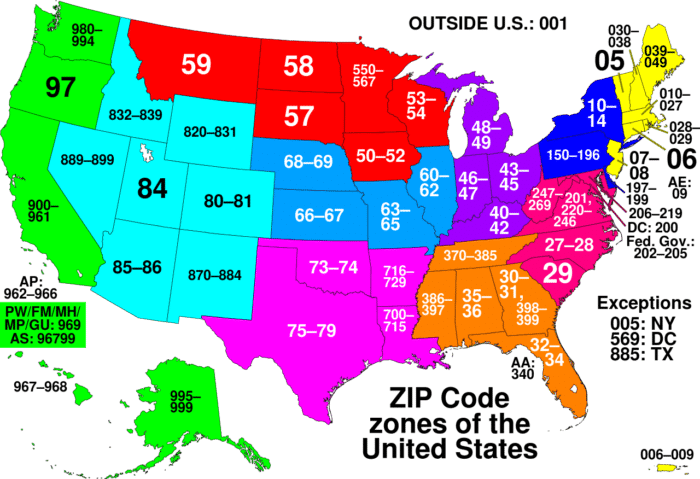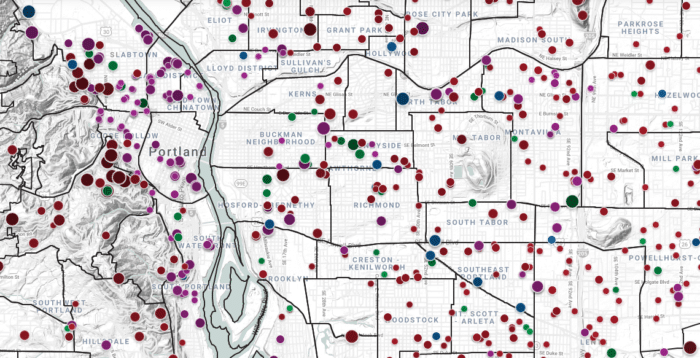Portland Zip Code Map: 2021 Update

Zip codes are just another part of our everyday life, right? We use them, but most of the time don’t think much about them. But understanding how the zip codes work in your area helps when you’re buying or selling a home. Knowing your zip code, or the zip code you’d like to live in, may prove to be a useful tool in your real estate arsenal. Keep reading to find out how to understand Portland zip codes, and how they can help you.
How Do Zip Codes Work?
Let’s start off with some basics. The US Postal Service instituted zip codes back in 1963 as a way of streamlining delivery. We’re talking about a time when suddenly air shipping was more common, interstates were improving, and the country as a whole became much more easily connected. In 1983, USPS implemented the +4 system, in which four extra digits may be added to your zip, in order to get even more specific and therefore efficient. These extra four digits, though, remain optional to this day for most basic mailing.
So how do zip codes get assigned? The system starts out with the first number indicating a broader region; the following numbers then becoming increasingly specific to a particular address. So let’s take a look at the first number.

The first number, ranging from 0 to 9, is assigned to a group of states. You’re pretty much looking at starting in New England and moving west. Oregon is grouped in with Western states, which all start with the number 9. All Oregon zip codes then follow with a 7 (compare this to the more populous California, where the second number can run between 0 and 6). After that, for the Portland area, a 2 designates any area central to Portland, whereas a 0 will indicate a surrounding area. After that, the last two numbers simply get more specific to neighborhood.
So let’s take a “read” of what a typical Portland zip code means.
| 9 – | West Coast |
| 7 – | Oregon |
| 2 – | Portland metro area served by a main mail distribution center |
| 0 – | Central Portland; 1 or 2 will indicate less central neighborhoods in the city |
| 2 – | A very specific part of central Portland |
The Best Portland Zip Code Maps
Figuring out zip code boundaries can be frustrating, especially for anyone new to the city. So first let’s check out the best ways to get a lay of the land. We’ve rounded up here the best maps out there for exploring Portland’s zip codes.
- Metro’s Regional Zip Code Map. This map is your definitive resource for zip code boundaries in the Portland metro area. Put out by the Metro Council, which serves residents of Multnomah, Clackamas, and Washington Counties, this map guarantees the most up-to-date and accurate information. (Especially since it’s government affiliated.) Another advantage this map brings is that it shows zip codes for the broader region, not just Portland proper. It ranges as far south as Canby, as far west as Forest Grove, and as far east as past Troutdale. You can also download a pdf copy for easier viewing.
- Google Earth Pro. For users of Google Earth Pro, exploring zip codes is simple using their “layers.” Go to “Layers” > “More” > “Governement,” and select “Postal Code Boundaries.” Take note that this feature isn’t available for the free Google Earth you might explore in your browser.
- Zipdatamaps.com. This private website provides color-coded maps of zip codes for whatever city or region you’re searching. Now, keep in mind that this site isn’t government affiliated. So you can’t trust it to be 100% accurate on boundaries, particularly if there have been any minor shifts in your area. But it is useful as a visual tool – it’s easy to read and get an at-a-glance idea of what zip codes in Portland look like.
How to Look Up a Portland Zip Code
So let’s say you’re interested in a particular zip code and want to find out more about it. What are the best ways to investigate? We recommend three tools to help you make sure you easily understand zip code boundaries (and check out the neighborhood).
- United States Postal Service ZIP Code™ Lookup. USPS’s service allows you to research zip codes three different ways: look up a zip code by address, look up a zip code by city/state, or search a zip code to see what cities it covers. Coming from the top source itself, this information is bound to be accurate.
- City of Portland Zip Code Lookup. The Portland city website also lists relevant metro area zip codes, including what city they technically fall under and approximate boundaries. However, they only take into account zip codes in Multnomah County.
- Google Maps. Unlike Google Earth Pro, Google Maps doesn’t provide a full zip code map. But you can look up a particular zip code and it will show you its boundaries. One of the best uses of this tool is you can simultaneously see restaurants, parks, grocery stores, etc. within a particular zip code. It makes a good snapshot of Portland neighborhoods.
Have Portland Zip Codes Changed in 2021?
The short answer: not to our knowledge. But the Post Office shifts boundaries subtly fairly frequently in order to maximize the efficiency of their routes. So especially if you’re planning to put your house on the market, it’s a good idea to look up your address using the USPS tool listed above to be sure that you know your zip code.
Search for Portland Real Estate By Zip Code
At the start of this post we referred to zips as one more tool in your real estate arsenal. Time to circle back around to that! Whether you’re buying or selling, we recommend using your zip code to guide you on our listings website, PortlandHomesForSale.com. Buying? You can search for homes within a particular zip code that interests you.

How would this help sellers or current homeowners, though? Rather than sifting through active listings, try searching for homes sold in the last 12 months in your current zip code. This will give you an idea of what home prices are like in your area. You can even save the search and choose to have updates sent to you when new sales happen.
And when you’re ready to beef up that arsenal even further, do so by choosing a trusted agent. Check out our top 1% buyers agents or top 1% sellers agents, who are ready to help you get the most out of your real estate transaction!


